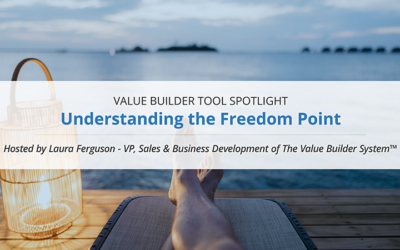EBITDA vs SDE

We have a lot of clients ask us, “What is EBITDA?” or “What is SDE?” These are both terms that relate to the buying and selling of a business. Let’s explain.
SDE
SDE is an acronym for Seller’s Discretionary Earnings, and is a metric for determining the historical cash flow of a business. It is a recasting process that starts with the net profit of a business, from either the business tax return or the year-end income statement. (We prefer to use the net profit from the tax return, as the tax return has typically been vetted by an accountant, and most financing for a business that uses SDE as a metric is SBA guaranteed, which relies heavily on tax return calculations.)
The owner’s salary, owner’s benefits, non-cash expenses, such as depreciation and amortization, and non-recurring expenses such as a move or litigation, are added back to the net profit to calculate the SDE. The SDE is usually used in smaller businesses, because many times the owners of those types of businesses aggressively expense a lot of personal benefits, such as use of automobiles and entertainment.
EBITDA
EBITDA is similar to SDE and is an acronym for Earnings Before Interest, Taxes, Depreciation, and Amortization. Although the concept is similar to SDE, EBITDA calculations are typically used for larger businesses with more disciplined financial reporting. One of the big differences between the two is that, in EBITDA calculations, the manager’s salary is not added back, whereas in SDE calculations, the manager’s salary is added back with the assumption that the buyer is going to replace the seller as the owner/operator of the business.
Private Equity Groups often use EBITDA calculations as a starting point in their initial cash flow assessments. They may also use EBIT (Earnings Before Interest and Taxes) as a metric. To complicate the process, we sometimes use an Adjusted EBITDA calculation as a hybrid method when the financials are fairly disciplined and the buyer is probably a financial buyer, such as a Private Equity Group, but the seller is taking a salary substantially higher than the salary of a non-owner manager.
Regardless of the method used, buyers and lenders prefer and will reward with a higher multiple of earnings, owners of businesses with fewer add-backs.
Contact Us
Don’t wait until you’re ready to retire to plan for the future. While we’re based in California, we work with healthcare-oriented businesses across the country.



